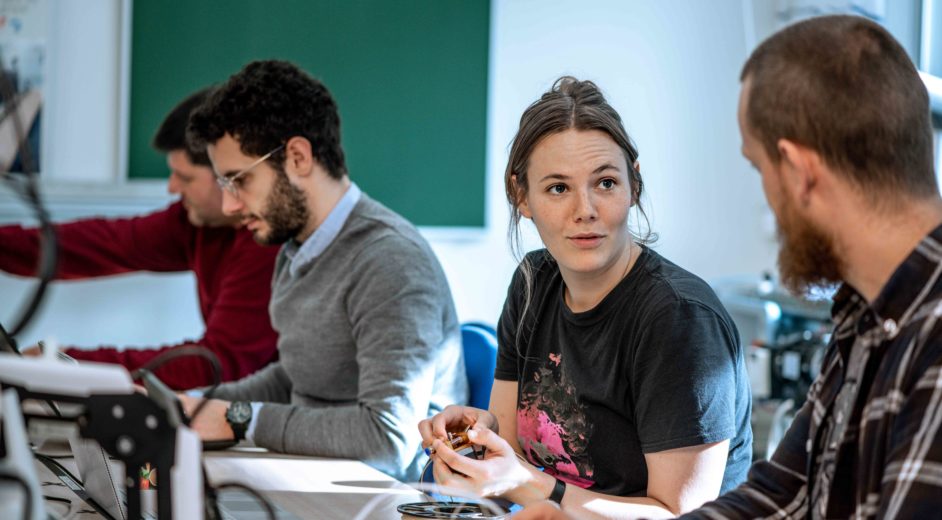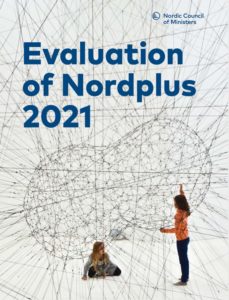Participants are very happy but we can do even better, says Nordplus
The Nordplus family is ready to take educational collaboration to the next level. There is a set task ahead of them: the Nordic region will become the most sustainable and integrated region in the world, and Nordplus can – and will – use its widespread roots in its various communities to create results.
We have asked the main coordinator in Nordplus Andrés Pétursson and two members of the Programme Committee what roles they see Nordplus taking on in the future.
By Joan Rask, journalist
They love the Nordic and Baltic countries - and Nordplus! There is no simpler way to put it when users, participants and partners are asked about their experiences with Nordplus. A 2021 evaluation shows an overwhelming level of satisfaction with the projects, networking and mobility programmes carried out by Nordplus in collaboration with educational institutions at all levels across the Nordic and Baltic countries.
Andrés Pétursson, the main coordinator of Nordplus for the 2019-2024 period, covers his face humorously with his hands and says:
”We are almost embarrassed by all the praise we got.”
The evaluation is conducted by Rambøll on behalf of the Nordic Council of Ministers and covers all areas of Nordplus’s many activities relating to educational collaboration in the Nordic and Baltic countries. Andrés Pétursson admits that he was a little worried about the result because it came in the wake of the Covid-19 pandemic, which brought with it a lot of cancellations and also the closing of schools and educational institutions.
”I’m proud that we managed to keep Nordplus more or less intact during the pandemic. None of us knew what had to be done but, in collaboration with the national and local coordinators, we quickly came up with new solutions and changed the rules so that funding for the project could be used on things other than travel – for example, on new equipment and on help navigating this new digital world,” he says.
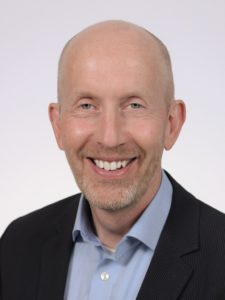
Iceland is currently in charge of the overall coordination of Nordplus, alongside the individual coordinators who are each responsible for their own country and also one of the five areas of the programme. The funding is distributed based on applications, and it is the Programme Committee within Nordplus that allocates the funds based on suggestions from the individual national programme coordinators. One of the members of the committee is Lene Oftedal, a senior councillor in the Norwegian Ministry of Education. She highlights one activity in particular.
”One of the best activities in Nordplus is class exchange. This is when a teacher brings a whole class with them to another Nordic city and lets the student explore and experience what it is like to meet peers, to be taught in a different country and to experience its culture and language,” she says.
Having worked in the Nordic Council of Ministers, the European Commission and UNESCO and having spent years working with Erasmus and now Nordplus, Lene Oftedal is an experienced woman when it comes to international educational collaboration. She is convinced that being in a different Nordic or Baltic city provides a completely different experience and perspective to what you would otherwise learn from a book or a screen, and she believes that in-person meetings are a way to open the door to places that may feel foreign and scary.
”Norwegian research shows that the young people who are most open to international collaboration are the ones who have been exposed to an international environment early in their lives. That is one of the reasons why I am such a big believer in early exchange, where the students and their teachers meet in person in each other’s home countries,” she says.
Lene Oftedal is not the only one with this opinion. The evaluation shows that the participants in Nordplus projects value mobility especially highly.
Nordplus is green and sustainable
Responsible use of resources, green solutions and more sustainability. These demands are crucial to the 2030 vision of Nordic collaboration, and Nordplus is mentioned several times in the 12 subsidiary goals set out by the Nordic Council of Ministers. Even so, Lene Oftedal is certain that it is still responsible to travel, even though this means that the CO2 footprint itself will be negatively impacted.
”Nordplus is a green programme because we visit our neighbouring countries. A lot of students travel to other continents on exchanges, which leaves a much bigger CO2 footprint. In the Nordic and Baltic countries we work together with our own community and neighbourhood, and because of that the CO2 footprint from the trips is not that big since we can often travel by train, ferry or car,” says Lene Oftedal.
She believes that international collaboration in trade, research, education and health is a crucial element in all of this and that, if we are to succeed in creating green and sustainable societies, international collaboration – and the travel that goes with it - has to continue.
”I have suggested that somebody – perhaps the European Commission – creates a system that calculates what the CO2 footprint of travelling is, based on which means of transport you are using! There is a big difference between travelling from Oslo to Copenhagen and from Oslo to Sydney. We can make a lot of different choices and in Nordplus we, of course, have to be conscious about the way that we travel,” she says.
In the northernmost regions and in Greenland, the Faroe Islands, Åland and Iceland, Nordplus representatives most often have to travel by plane. This pains Andrés Pétursson and his colleagues, and they are looking into the possibility of planting trees as compensation for the negative CO2 footprint their many plane trips from Island leave behind.
”The dilemma we have is that, on the one hand, we want to be green and sustainable while Nordplus, on the other hand, is about people visiting and meeting in each other’s countries. Luckily the projects have become more open to meeting online, and in the future I think we will see more and more projects combining the in-person and the digital from the very beginning,” Andrés Pétursson explains.
He points out that one of the good things brought about by the Covid-19 pandemic is that almost everyone feels more comfortable in the digital world. This goes for teaching situations at almost all levels as well as when people meet in formal and informal settings. And the same thing has happened to them. Before the pandemic, the coordinators would meet in person 1-3 times a year, and Greenland, the Faroe Islands, Åland and a number of the Baltic countries often had to decline.
”During the pandemic we realised the great value of digital meetings and as a result the main coordinators now meet digitally every month. It has created a brand new dynamic and makes it possible for everyone to attend. This is something that will continue and we also need to develop the digital field even further ourselves. It creates better results, better economy and saves CO2,” he says.
Because Nordplus is naturally also about economics and about the profit generated by the activities, the Nordic governments want to see their investment in Nordplus pay off.
The universities receive the most funding
Today, almost half of all funding is allocated to the “Higher Education” programme, while a quarter goes to the “Junior” programme and the remaining quarter is shared by the remaining three programmes, “Adult”, “Horizontal” and “Language”. Lene Oftedal wants to change this.
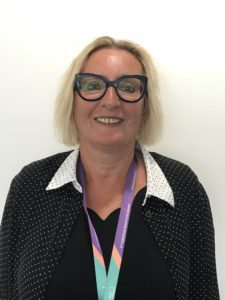
”In order to reach the goal of the Nordic countries becoming the most integrated and sustainable region by 2030, more people need to be aware of Nordic collaboration. The best way to do this is to make people aware of it while they are at school. That is why I think Nordplus should prioritise primary school exchanges and collaboration more than we do today,” she says.
Her Finnish colleague in the Programme Committee, Anna Mikander, who represents the primary school levels on behalf of the Finnish Ministry of Education, agrees that there is a lot of untapped potential within the primary school area.
”I wish there was a way to combine activities in two programmes – for example Horizontal and Junior,” says Anna Mikander.
One of the improvements that Anna Mikander dreams of for the schools is that the rules for how the projects are combined become more flexible and are increasingly freed from their specific focus areas.
”Networks are created in the university community and we know that this works really well and that the universities build Nordic and Baltic networks that last for decades. I hope the world of primary school education also has the opportunity to do this, but the parameters are slightly different since the levels of education work differently,” she says.
Lacking political knowledge
Anna Mikander explains that she persistently tries to keep politicians up to date about Nordplus, but that their positions and seats in committees and councils naturally change so often that it seems like a never-ending task.
”We need more focused communication about Nordplus at a political level, so that relevant information about the possibilities and opportunities that Nordplus offers in terms of collaboration and networking can reach a larger audience,” she says.
She believes that Nordplus is already a crucial player in the effort to increase Nordic collaboration.
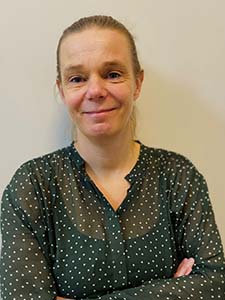
”I hope and believe that Nordplus can become an even bigger player on this stage. It can be done if we make the decision-makers more aware of Nordplus, including how important it is for citizens to learn about the Nordic countries and the cornerstones of Nordic collaboration,” she says.
More specifically, she finds that Finnish politicians often highlight Nordic collaboration as the most important international collaboration.
”We have often discussed how to best communicate this message to politicians and how to communicate directly to and with the political community. Many people believe that Nordic and Baltic collaboration is important, but a lot of the time they are not sure why, and they know way too little about the many possibilities! But this is something people can learn when they collaborate from a young age – and that is why Nordplus is so valuable,” says Anna Mikander.
Evaluation of Nordplus 2021 (web)
Evaluation of Nordplus 2021 (in pdf)
Highlights from the Evaluation of Nordplus 2021
- Across the Nordplus subprogrammes, large majorities of participants in most projects interact both physically and virtually, and project coordinators and other stakeholders see important value in Nordplus’s promotion of mobility and cohesion in the Nordic-Baltic region. They emphasise that it is important to maintain Nordplus’s role in providing support for educational cooperation within the region, as it strengthens shared identity through human connection and shared practice.
- According to project coordinators and other stakeholders, the programme supports network development, creating meaningful Nordic Partnerships and cooperation that go beyond individual projects. Many see great value in Nordplus’s accessibility, which makes it possible for smaller organisations to participate in such Nordic/Baltic cooperation. Project coordinators and other stakeholders from Nordic and Baltic countries believe that common culture and approaches to education enable easier and faster development of educational cooperation.
- Nordplus enhances knowledge-sharing and development of innovative materials and practices within education across subprogrammes.
- Nordplus-funded projects contribute to further understanding and interest in the Nordic cultures and languages, which can further enhance a common Nordic culture and understanding.
Facts about Nordplus
- Nordplus is a programme that offers financial support to partners in the area of lifelong learning. More specifically, it is a mobility and network programme aimed at supporting organisations and institutions in all educational sectors involved in learning and education in the Nordic and Baltic countries, including the autonomous regions of Åland, the Faroe Islands and Greenland.
- Nordplus is funded by the Nordic and Baltic countries and is the largest educational programme within the Nordic Council of Ministers. Each year, Nordplus awards approximately 9,6 million euro in funding for mobility, projects, and networks in relation to the five subprogrammes:
- Nordplus Junior
- Nordplus Higher Education
- Nordplus Adult
- Nordplus Horizontal
- Nordplus Nordic Languages
- The responsibility for developing the Nordplus Programme and the underlying subprogrammes as well the responsibility for distributing the funds in each subprogramme lies with the programme committee. The programme committee consists of 16 members – two from each country – who are appointed by the relevant ministries in each country.
